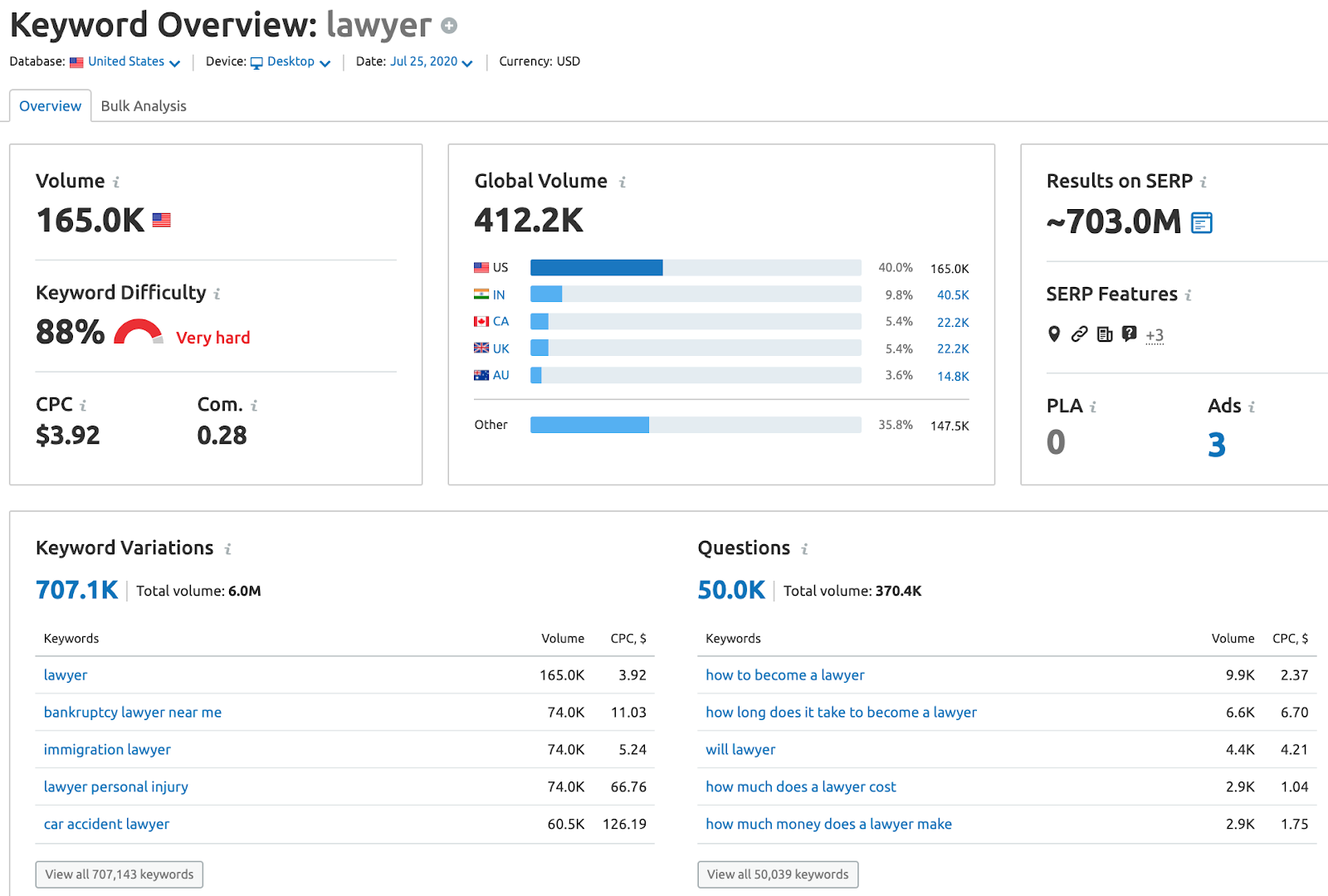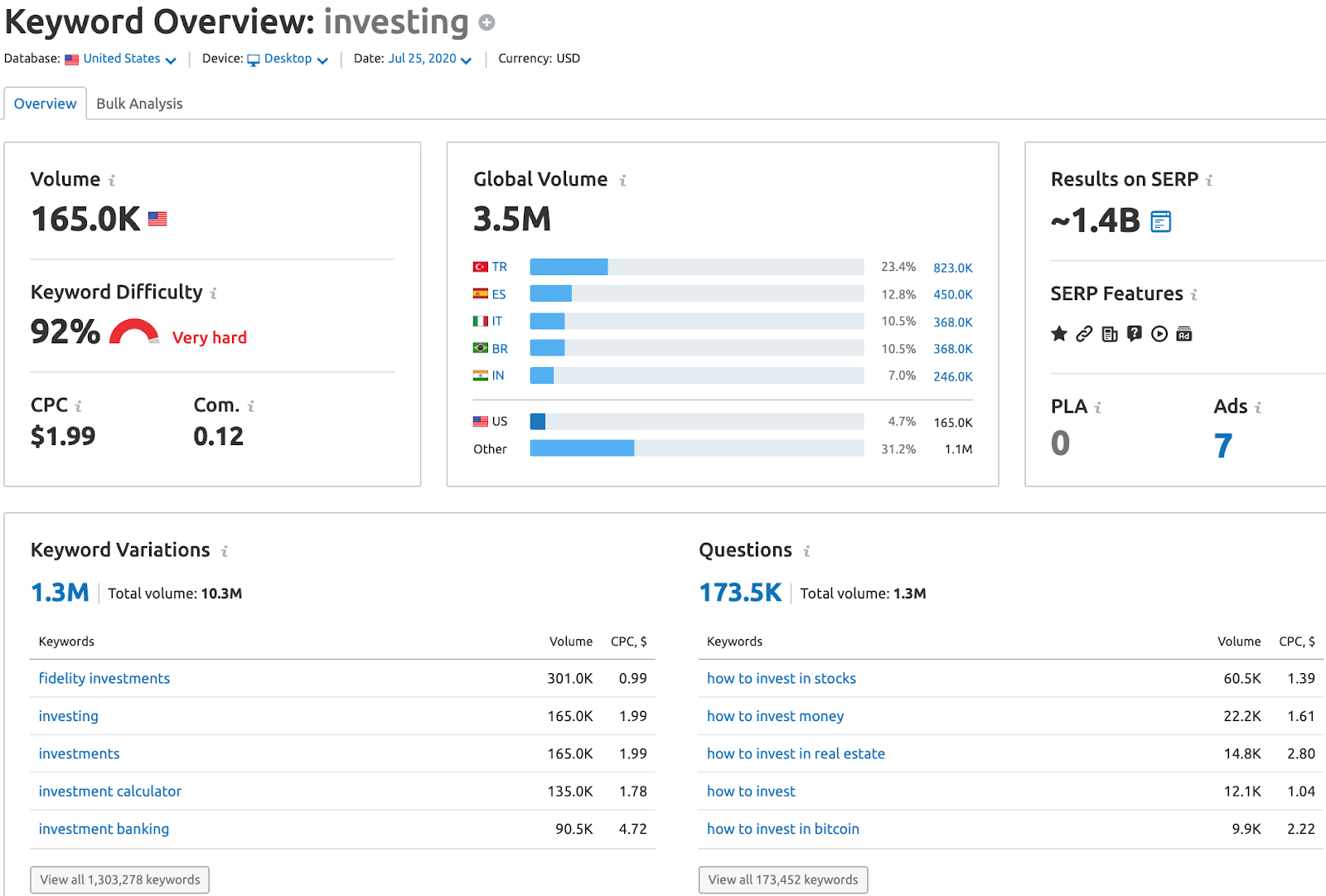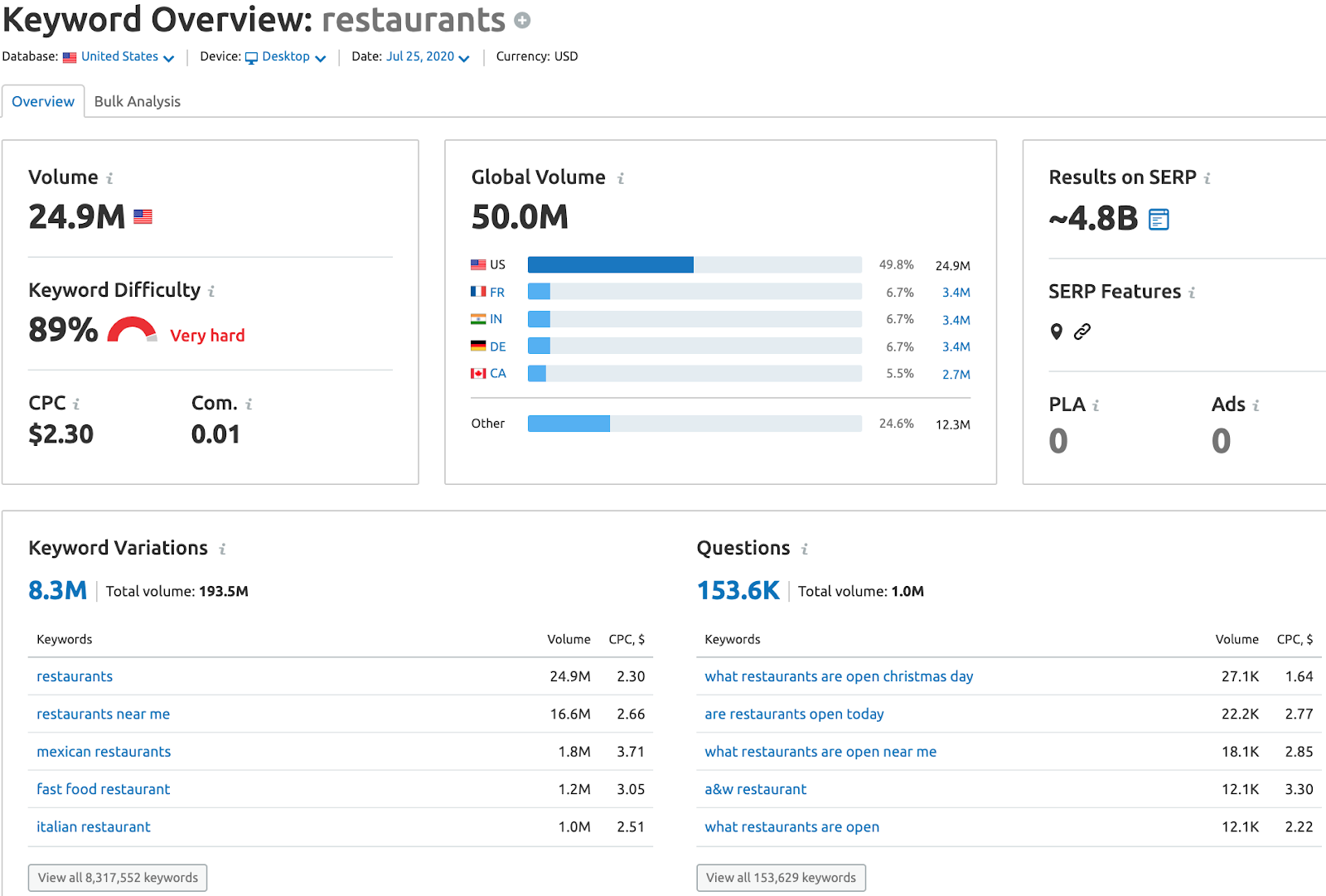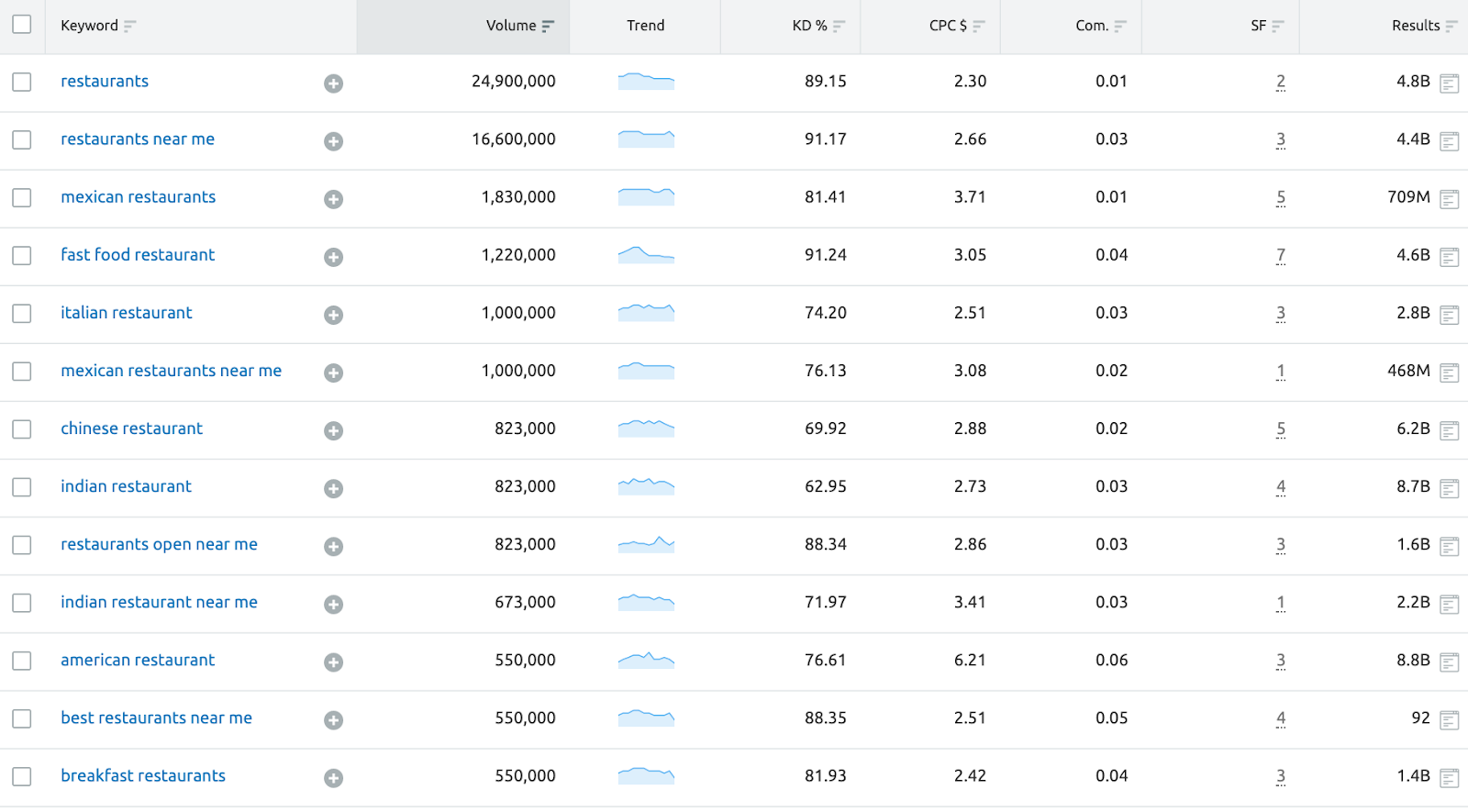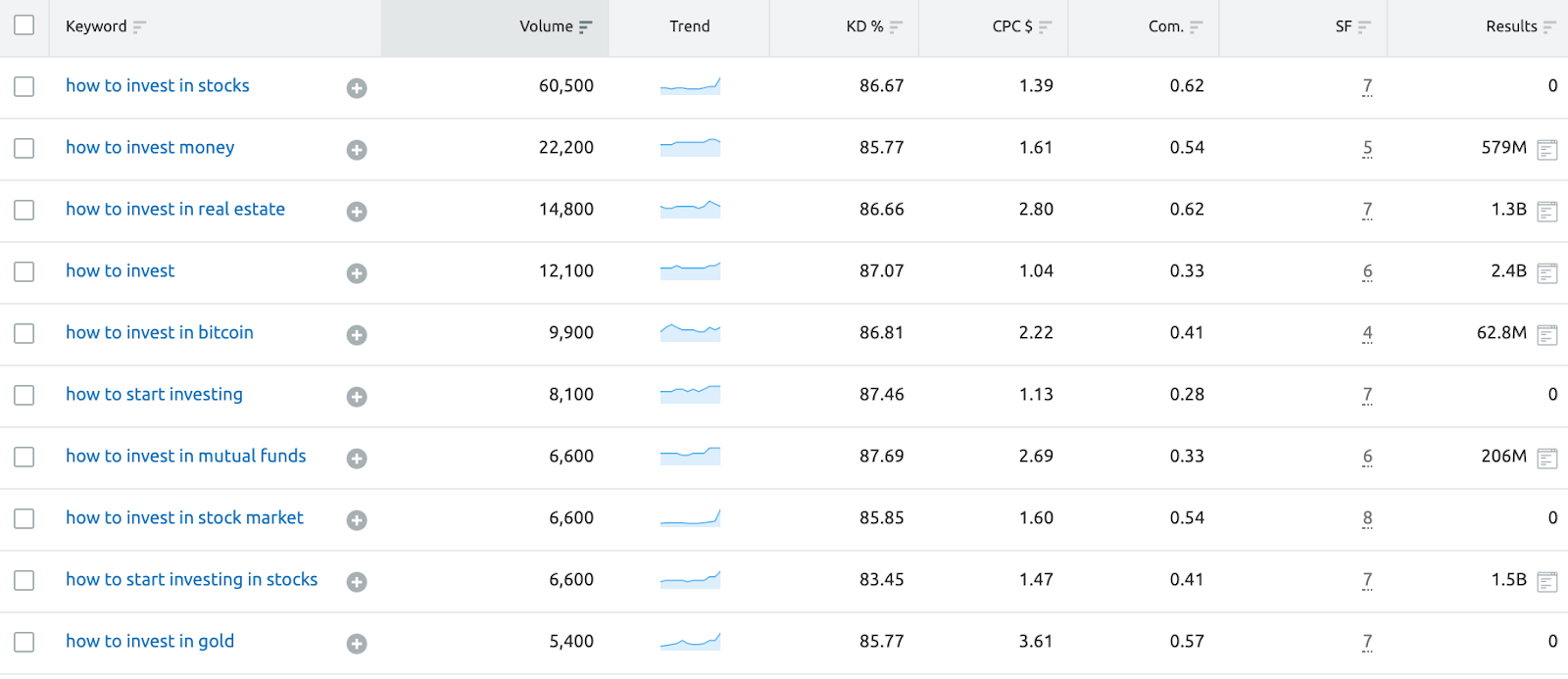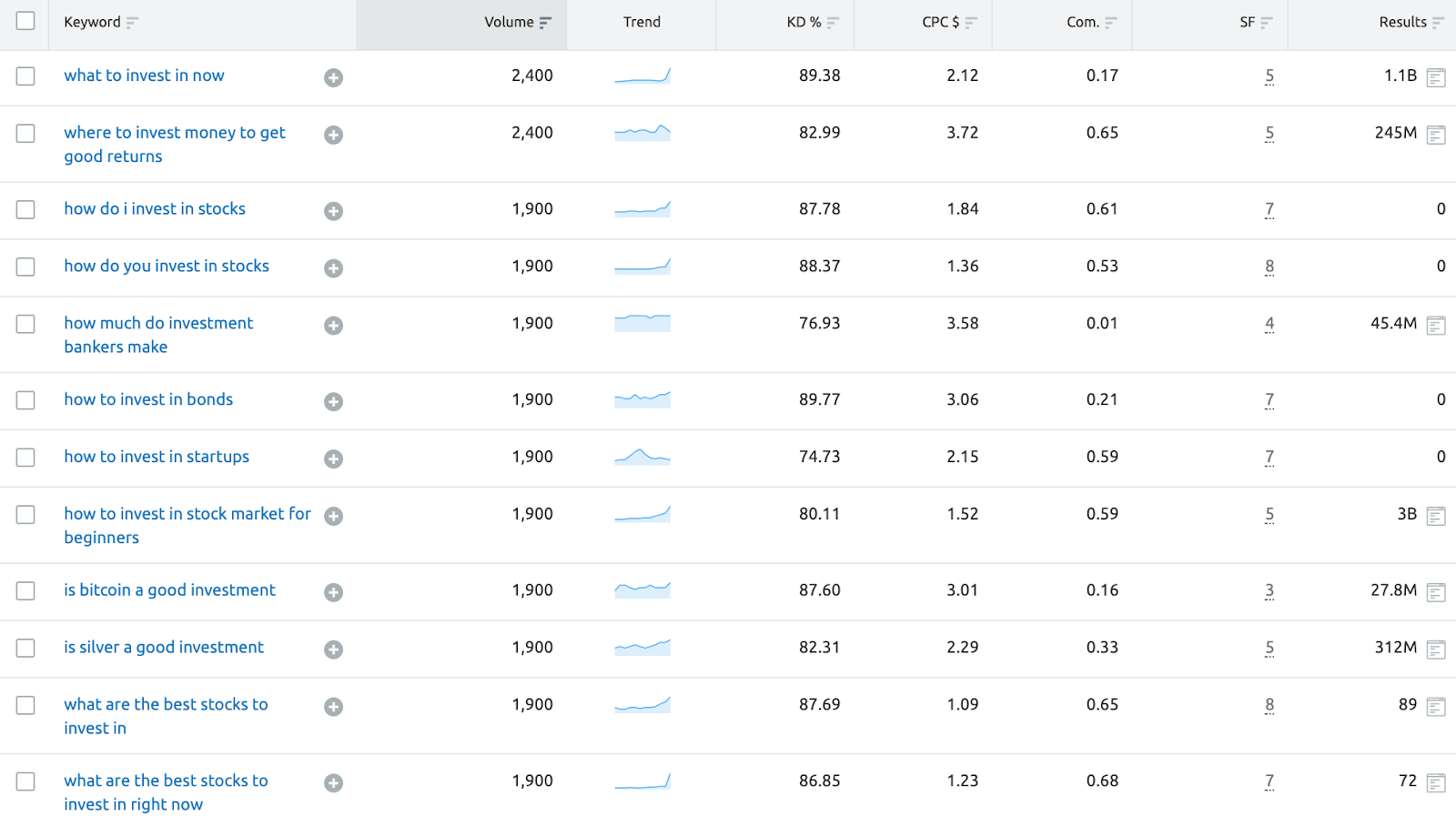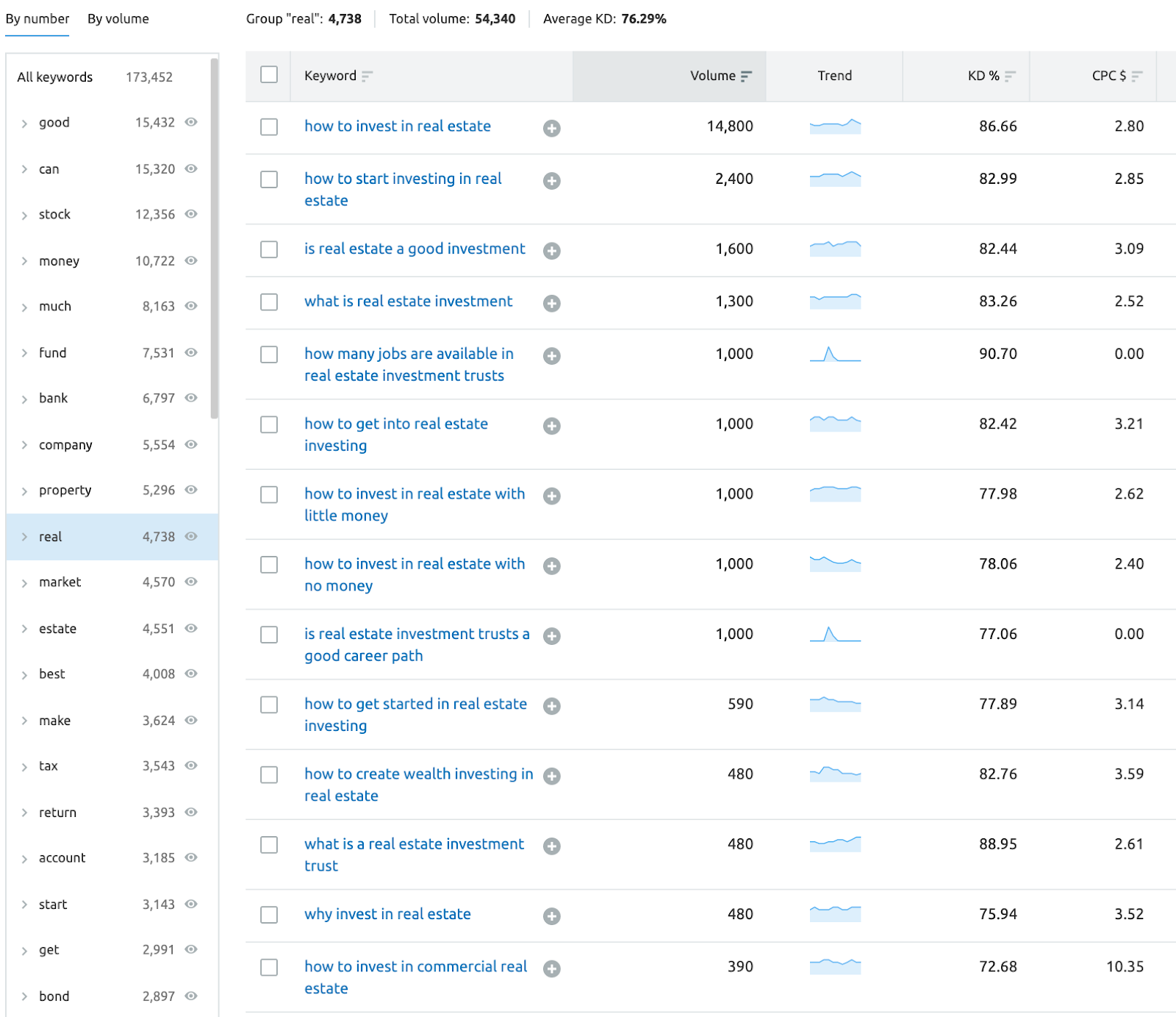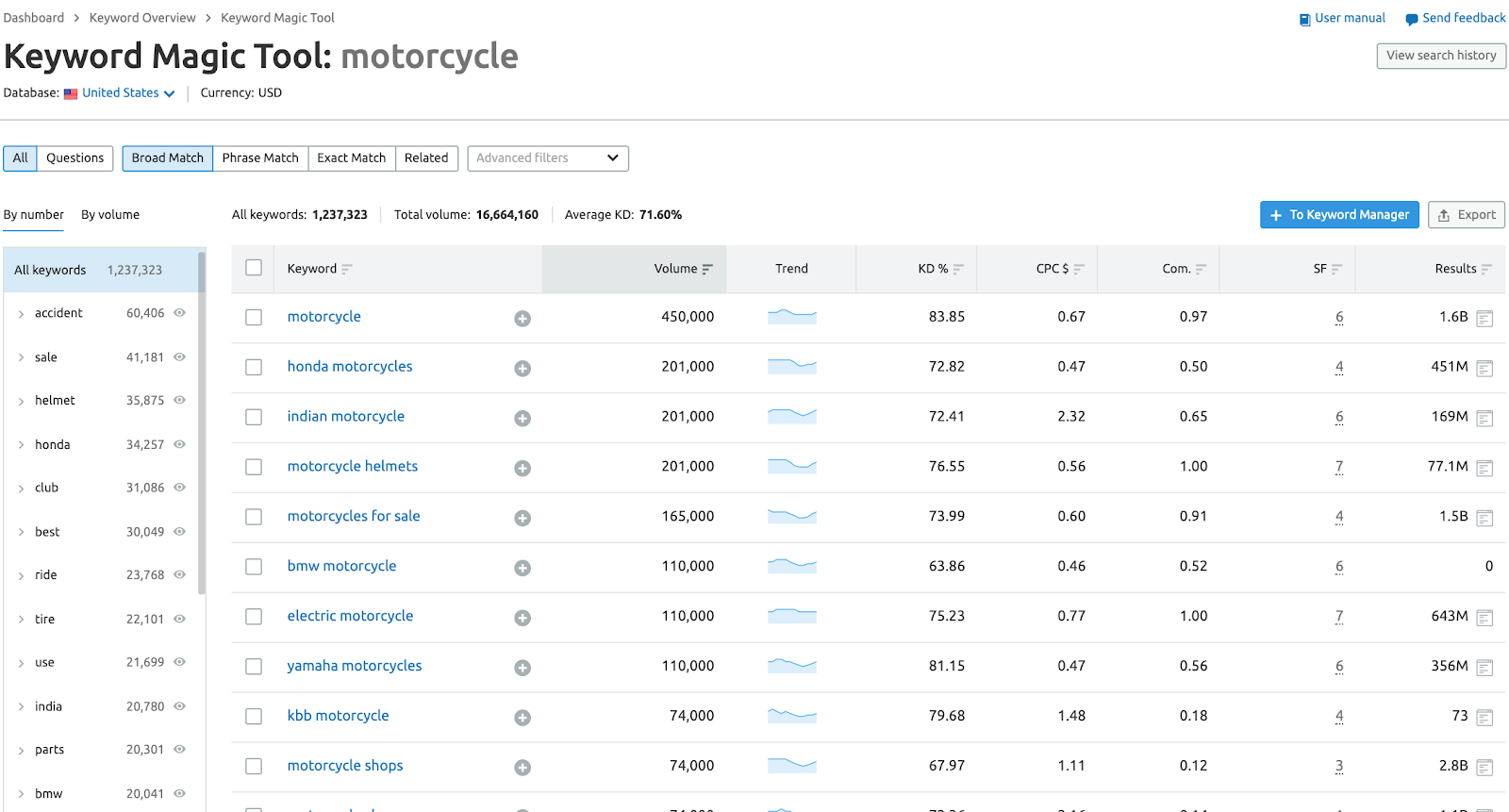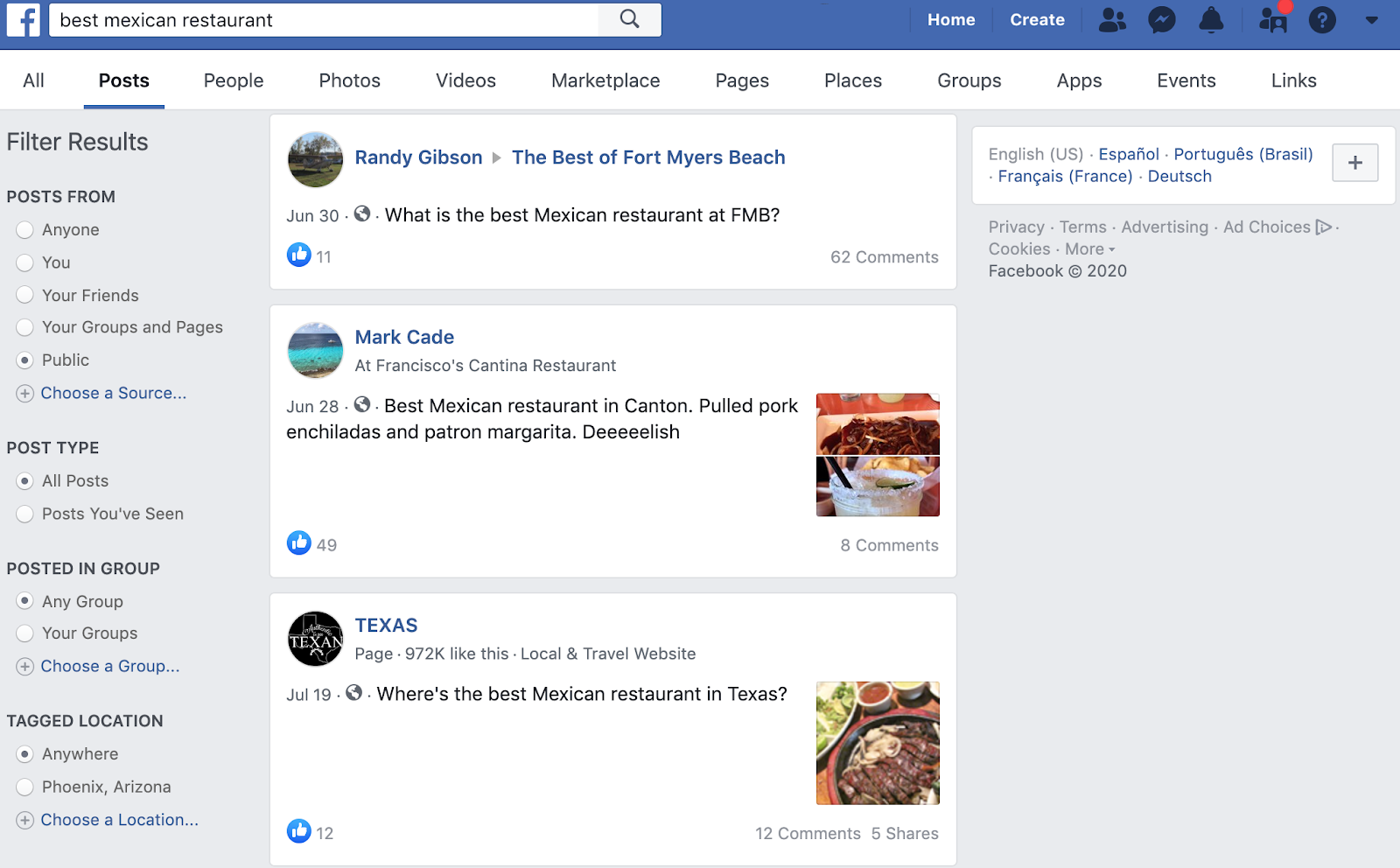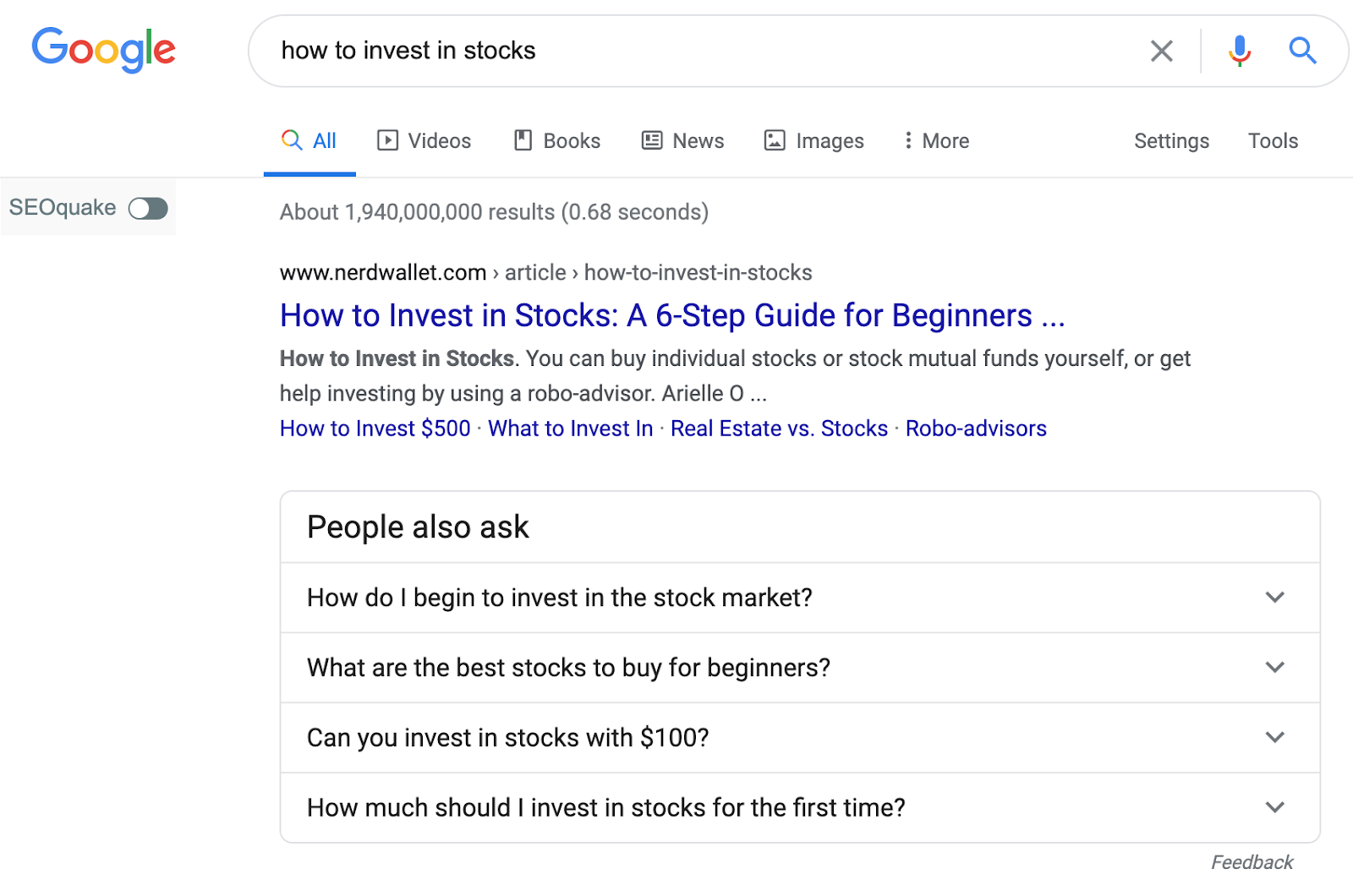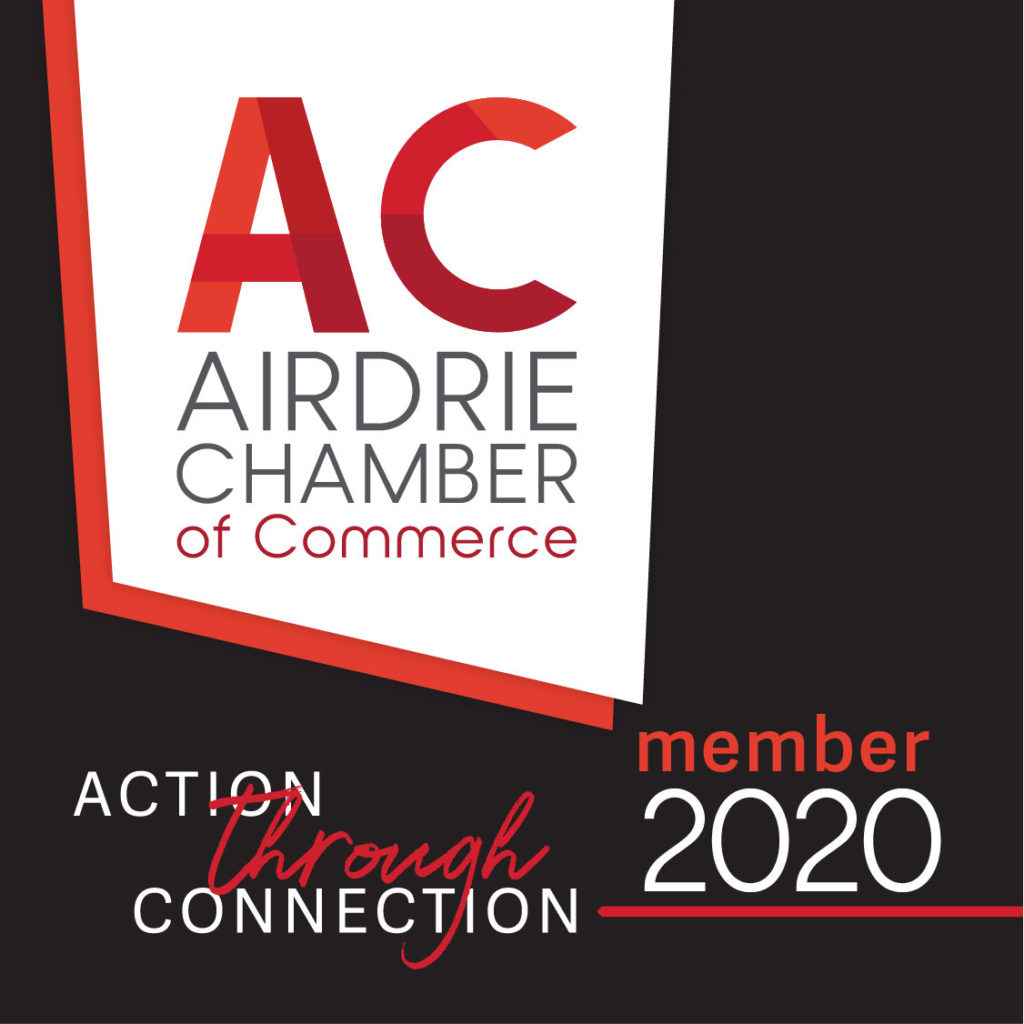Are you struggling to get organic search traffic to your website? Or are you looking for ways to lower your PPC cost while ensuring that your paid search ads generate the most qualified traffic? The solution to both is to say goodbye to optimizing for keywords, and hello to keyphrases. This post will discuss the numerous benefits of optimizing your website content for specific keyphrases over generic keywords.
What is a keyphrase?
The terms keyword and keyphrases are frequently interchangeable, but there is a distinct difference. Keywords typically refer to the most popular one to two words a user enters into Google and other search engines to find information about a topic.
Keyphrases (also referred to as long-tail keywords) are two or more keywords that users enter to find highly specific information. Because they are longer, they are typically not as popular and help users find much more specific information about a topic.
Keyphrase Examples
The following are keyword versus keyphrase examples. In the first, you can see how a search for the keyword lawyer has a high search volume and a “very hard” difficulty rating. The CPC for keyphrases like car accident lawyer is higher due to the user’s commercial intent when searching for a specific type of lawyer.
In the next example, you can see that the keyword investing has a 92% difficulty rating.
Keyphrases questions related to investing have a lower search volume and slightly lower difficulty rating.
In the third example, the keyword restaurants has the highest search volume. Keyphrases, because of their commercial intent, have higher CPC.
While the CPC for keyphrases tends to be higher based on commercial intent, the ROI for campaigns based on keyphrases is still likely to be higher thanks to the specificity and lower search volume. You will get less traffic, but the visitors are more likely to be interested in the content, products, and services you are offering.
Why choose keyphrases over keywords?
The following are the five key benefits of choosing keyphrases over keywords during your keyword research process.
- Keyphrases will almost always include the most popular keywords for your niche.
You don’t have to choose a keyphrase over the most popular keywords for your niche. Those keywords are going to be a part of your keyphrase. In some cases, you may have multiple keywords within your keyphrase.
For example, if you optimize a web page for car accident lawyer (with 60.5k average monthly searches), you are simultaneously optimizing it for the keyword lawyer (165k) and the keyphrase accident lawyer (27.1k). This potentially adds 192.1k average monthly searches on top of the 60.5k for your focus keyphrase.
If you optimize a web page for an even longer keyphrase – how to hire a car accident lawyer (30) – you are simultaneously optimizing it for the keyword lawyer (165k) and the keyphrases accident lawyer (27.1k), car accident lawyer (60.5k), hire a lawyer (880), hire a car accident lawyer, how to hire a lawyer (320), and similar variations. This potentially adds 252.6k average monthly searches on top of the 30 for your focus keyphrase.
- Keyphrases ensure that you are getting the most qualified traffic from organic and paid search.
If you want to lower your web page’s bounce rate (the number of people who click on your web page from search results and leave without completing any actions), optimize for keyphrases. It will ensure that the visitors who click on your link are looking for specific information on your webpage.
For example, if you optimize your web page for how to hire a car accident lawyer and that page starts to rank on the first page for car accident lawyer, visitors will know the content on your web page is about how to hire a car accident lawyer. Anyone looking for similar, but unrelated information, such as becoming a car accident lawyer, would know to skip your page before they even clicked on it.
- Keyphrases can help you better organize your content.
As you are crafting your website’s navigation, you can use the popularity of keyphrases related to your niche’s main keyword to organize your content, products, and services. This will help your visitors find the things they want most, even if they clicked on your website from a broad keyword search.
For example, if you were going to start a restaurant delivery service, keyword research would reveal restaurants’ most popular categories. Mexican restaurants (1.83m or 2.83m if you also include Mexican restaurants near me‘s search volume), fast food restaurants (1.22m), Italian restaurants (1m), Chinese restaurants (832k), Indian restaurants (832k), and breakfast restaurants (550k) should be the first categories that a visitor sees since they are the most searched keyphrases related to restaurants.
In addition to better organizing your website’s navigation structure, you can use this data to create quick links at the top of your mobile app as well as selections for automated prompts on a chatbot or when people call your 1-800 number. Alleviating your visitor’s frustration by helping them find the specific content they want most – even if they didn’t specifically search for it – will lead to better customer service and more positive reviews.
- Keyphrases can lead to better blog content.
If you are having a hard time coming up with content ideas for your blog, social media, or video channel, keyword research can help. Let’s say that you are staring an investing blog. You can use the most popular keyphrase questions as your guide to what content to create first.
The top 10 most popular questions related to investing offers six unique content titles to choose from. As you continue browsing the list of keyword variations and questions, you will find even more topics that can be turned into useful content.
When creating informational content, pay particular attention to the trend column. You may want to capitalize on topics that are currently popular versus topics that may have been popular in the past but are currently losing traction. Topics that are emerging in popularity may have a low average search volume now, but in a few months, they could move up in the list of keyphrases with a higher search volume. Examples of topics that are gaining in popularity below include what to invest in now, how do you invest in stocks, and how to invest in stock market for beginners.
In addition to finding good topics, you can also use keyphrases to create an outline for your content. If you narrow your list of keyphrases by group, you will find a combination of useful topics and good points to include within your content.
For example, if you have a blog post on targeting the keyphrase how to start investing in real estate (2,400). You can use keyphrases like what is real estate investment (1,300), is real estate a good investment (1,600), how to get started in real estate investing (590), and how to invest in real estate with no money (1,000) in your main headings throughout the post. This will optimize your content for an additional 4,490 in potential average monthly searches.
- Keyphrases can increase the ROI of your Google Ads and other PPC ad campaigns.
Using keyphrases in your Google Ads and other PPC ad campaigns can help you increase the ROI in two ways. Because keyphrases are more specific, people who see your ad in search results will know exactly what your web page has to offer before they click on it.
For example, let’s say you have created paid courses on how to invest in stocks and real estate. Instead of targeting the keyword investing or the keyphrase of how to invest, you can target how to invest in stocks and how to invest in real estate.
By targeting the keyphrase, you will know that people who searched for these specific topics are more likely to purchase your course. It’s better than targeting investing with a CPC of $1.99 without knowing the specific type of investing the search user is interested in, leading to a higher bounce rate. And while how to invest in real estate has a higher CPC of $2.80 compared to investing or how to invest ($1.04), again, you know that anyone who searches for and clicks on your link is definitely interested in learning about real estate investments.
When it comes to paid search and other PPC campaigns, targeting your user’s specific interest may lead to fewer clicks at a higher cost. But the conversion rate of the people who do click will be higher because they know that your content is exactly what they want.
How to Find the Best Keyphrases
Using SEMrush’s Keyword Analytics, you can get the most detailed information about keyphrases related to your niche’s most popular keywords. Keyphrases are broken into Keyword Variations, Questions, and Related Keywords.
When you dive deeper into one of these three categories, you will get the most crucial data about each keyword and keyphrase. You can see which ones get the average number of monthly searches (calculated over 12 months), the keyword by month’s overall popularity, the keyword difficulty rating, CPC cost, and level of competition on Google Ads.
You can also use the SF column to optimize your content based on Google’s inclusion of featured snippets, reviews, site links, people also ask, and other SERP features shown on the first page of search results for a specific keyword or keyphrase.
Finally, you can use the number of results for each keyword or keyphrase to determine how many other pages you will be competing against in search results.
Ways to Use Keyphrases
Most people will know to use keyphrases in the title of their web page and throughout the page’s content (particularly the first and last paragraph). And, as mentioned in the benefits of using keyphrases to create better content, you can also use keyphrases in the headers (H2, H3, and H4) throughout your page’s content.
There are also several other key places you can use your keyphrases to ensure that your web page – and other online content – is optimized for maximum search visibility.
Images
When adding an image to your web page, use the keyphrase that is most related to the image in the image filename, ALT attribute, and title attribute. This will help with discovery in image search results.
For example, if you have a restaurant delivery service, you can use the keyphrase for photos representing each restaurant category like this.
<img src=”best-mexican-restaurants-near-me.jpg” alt=”Best Mexican Restaurants Near Me” title=”Best Mexican Restaurants Near Me” />
This allows you to optimize for all of the search traffic for keyphrases Mexican restaurants (1.83m), Mexican restaurants near me (1m), best Mexican restaurants (33.1k), and best Mexican restaurants near me (9,900) in both the main and image search results.
In addition, you can add this keyphrase to specific restaurant images.
<img src=”Margaritas Mexican Restaurants near me” alt=”Margaritas Mexican Restaurants near me” title=”Margaritas Mexican Restaurants near me” />
Now, you have optimized for all of the search traffic for the keyphrases mentioned earlier and the name of a specific restaurant, Margaritas Mexican Restaurant (6,600).
Social Media
Occasionally, pages and posts from social media networks like Facebook, Twitter, and Quora can appear in Google search results. Also, each social media site has its own search box and search results. To ensure that Google search and social media users discover your pages, profiles, and updates, add keyphrases to the following places.
- In your page or profile’s bio, about description, extended description, category, and keywords.
- Specifically, within the first 60 characters of tweets, Facebook updates, Pinterest pin title/description, and other social media posts.
- You include on your page, profile, posts, stories, and comment replies in the hashtags.
You can also use keyphrases in the search box on social networks to discover public posts, posts from your connections, and posts within groups. Look for conversations related to your keyphrases where you can add to the discussion, answer a question, or make a recommendation with a link to a specific page on your website, pages, or profiles.
In particular, Quora can be a great place for researching keyphrases and searching for questions to answer related to your keyphrases.
Link Building
Are you looking for the most relevant backlink partners? Analyze search results for the top pages related to your keyphrases. You may have to filter out many competitors, but what you will be left with are the top pages and pieces of content related to your niche.
There are two approaches you can take with these sites. Contact the author of the content or the site editor to see if they would be interested in adding more value to their post by linking to a relevant piece of high-quality content from your website’s blog or video library. Or, apply to be a contributor, submit high-quality content, and get in front of their loyal, niche audience.
Keyphrase Research Tools
In addition to using SEMrush’s Keyword Analytics tools to get the most data about keyphrases related to your niche’s primary keyword, there are several additional tools provided by Google to discover additional keyphrases for your content.
You can start with Google search itself. When you start typing in a keyword, you will get related keyphrases that are most often searched by other users.
In the search results, look at the “people also ask” section.
Then scroll down to the searches related to yours.
Next, there is the Google Ads Keyword Planner. This will give you a more realistic range of bid amounts if you are considering a paid search ad campaign.
Google Trends will allow you to see how popular a topic is in a particular region and over a specific timeframe, all the way back to 2004. It will also offer related topics and related queries that are gaining in popularity.
If you are looking for keyphrases related to your website, you can also:
- Set up Google Console for your website. It will show you the number of times people have seen your web pages in search results for a specific query and the pages that receive the most impressions in search results.
- Set up Site Search in Google Analytics. It will tell you what your website visitors are searching for when they arrive on your website.
Conclusion
If you want to increase the number of visitors from organic and paid search results that are most likely to convert into customers, subscribers, and loyal content followers, consider adding keyphrases to your keyword research process. You will not only get the benefits of optimizing for the most popular keywords in your niche, but your website will also attract the most qualified visitors from Google and other search engines.

